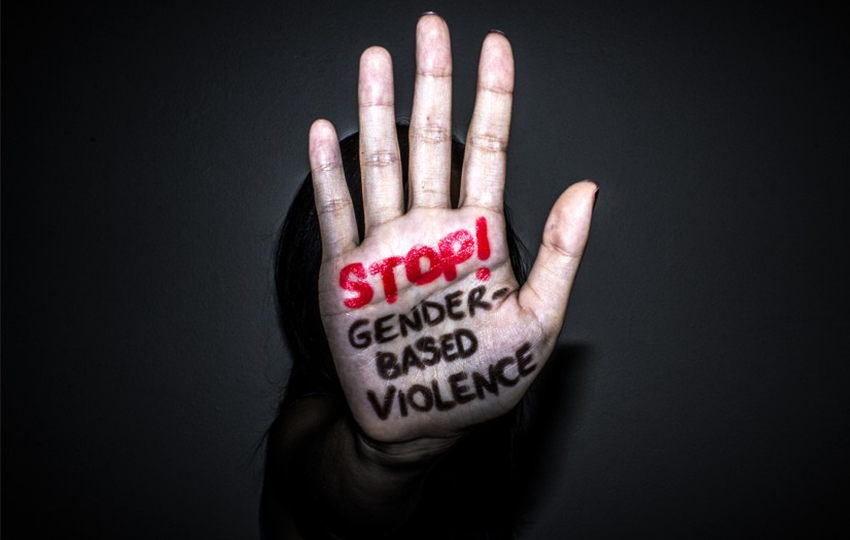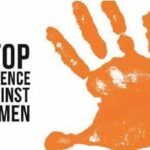By Bakare Opeyemi Nafisat
Five years ago, “Me Too”—a hashtag for sexual harassment against women—went viral. Alyssa Milano, an American actress, started the trend. Milano tweeted: “If you’ve been sexually harassed or assaulted, write ‘me too’ as a reply to this tweet.” The tweet had one purpose: to give people “a sense of the magnitude of the problem”.
What was “the problem”? Sexual abuse against women. Specifically, #MeToo started because several women accused former Hollywood top guy Harvey Weinstein of sexual harassment. The campaign also revealed that gender-based violence is the plight of almost every woman. The World Health Organization (WHO) also agrees—globally, one in three women (30%) experiences physical or sexual violence in their lifetime.
Celebrating World Teachers’ Day
ASUU strike: Lecturers as endangered specie
The digital era of violence
When used correctly, technological devices make lives easier and are excellent social awareness tools (Cue the Milano tweet drew responses from millions of women worldwide.). However, sadly, the presence of digital devices also means violence against women (VAW) is taking on new shapes.
As an avid Twitter user, I’ve seen several women harassed online with revenge porn, cyberstalking, sextortion, and sexist jokes. For instance, in January 2022, a woman accused Manchester United player Mason Greenwood, of sexual assault, physical abuse, and threats to kill. She shared disturbing images and videos to back her claims against the 21-year-old.
Shortly after the accusations, Greenwood’s club swiftly excluded him from playing, which is ethical and legal because the police received a complaint. However many Twitter users (read football fans) made light of the situation through thoughtless and insensitive jokes. For many fans, the woman was simply trying to “destroy” the career of a young football player. They didn’t spare any thought about the psychological effects of the incident on the woman.
Greenwood’s case isn’t an outlier; sadly, it’s the norm. In 2020, a Twitter user, Oroboghene, accused another user she used to date, Tife Fabunmi, of rape and leaking her nudes. In his attempt to deny it, he posted screenshots of their chat where he admitted to raping her and apologised to her. One would expect his admission of guilt would make people rally to her side with words of comfort. Instead, it led to an onslaught of attacks on her. They bullied her, slut-shamed her, and called her unprintable names. She had to change her handle and everything about her profile.
Oroboghene’s case perfectly summarises the culture on social media platforms. A woman was raped, yet the abuser had numerous allies. Like the tweet below, the rape incident isn’t a severe incident worthy of attention for some. For many others, rape is another social media banter material. Irrespective of where you look, it’s almost a given that social media users will downplay sexual harassment/abuse cases against women. Therefore, making it hard for victims to share their stories.
Comfort’s case also reflects the cultural and institutional discrimination against women. It’s why random jokes and feuds quickly become “rapey” materials, like the despicable exchange between popular musicians Shatta Wale and Burna Boy early this year. The institutionalised discrimination against women eats deep. And technology is giving it wings to fly.
Protect women at all cost
Women rights activists say, “women’s rights are human rights,” and they’re correct! More than any group, women are targeted online and offline—the rut is that deep. And that’s why it’s the responsibility of everyone to make the world safe for women. But how can we do that? Below are four ways;
- Social awareness
Many untrue ideas about women float around the internet. As a result, it’s important to empower the right people to raise social awareness about women. For example, social awareness was one of the broader effects of the #MeToo movement. After the movement went viral, it forced many men to listen and learn how to treat women better with the #HowIWillChange hashtags and more.
- Listen
Listening is fast becoming a dying skill. Too many times, people are too eager to prove they’re right. Or worse, they’re better, and this frustrates meaningful conversations. Social awareness is excellent, but it means nothing if you don’t listen. To do this, learn to have civil conversations, especially with women. And when women share their (sexual survival) stories, learn to listen—not shoot—first.
- Stand against rape culture
First, let’s state some facts;
There’s no justification for rape.
Rape isn’t a “punishment” for anyone who refuses your sexual advances.
Children (girls less than 18 years old) can’t consent to sex or any sex-related activity.
You’re not entitled to any woman’s body.
No is a complete sentence, and it means no.
Always get consent before any sexual activity.
That said, rape culture is a menace in Nigeria. And this is because Nigerian culture is full of patriarchal myths about women and their bodies. This is why unlearning cultural and institutional bias about women’s bodies is the first step to standing against rape culture.
- Prosecute offenders
Actions have consequences, including your interactions on the internet. Laws will bring order and responsibility. Therefore, the government and other relevant stakeholders must implement stringent laws addressing digital interaction to protect women and girls from digital gender-based violence.
Without these measures and more, we’ll continue to prevent women from reaching their potential. Therefore, as we celebrate the International Day of the Girl Child on October 11th, we must remember our collective responsibility to protect women and girls from gender-based violence in this digital era.
Nafisat is the founder and Executive Director of Webfala Digital Skills for all Initiative

 Join Daily Trust WhatsApp Community For Quick Access To News and Happenings Around You.
Join Daily Trust WhatsApp Community For Quick Access To News and Happenings Around You.


